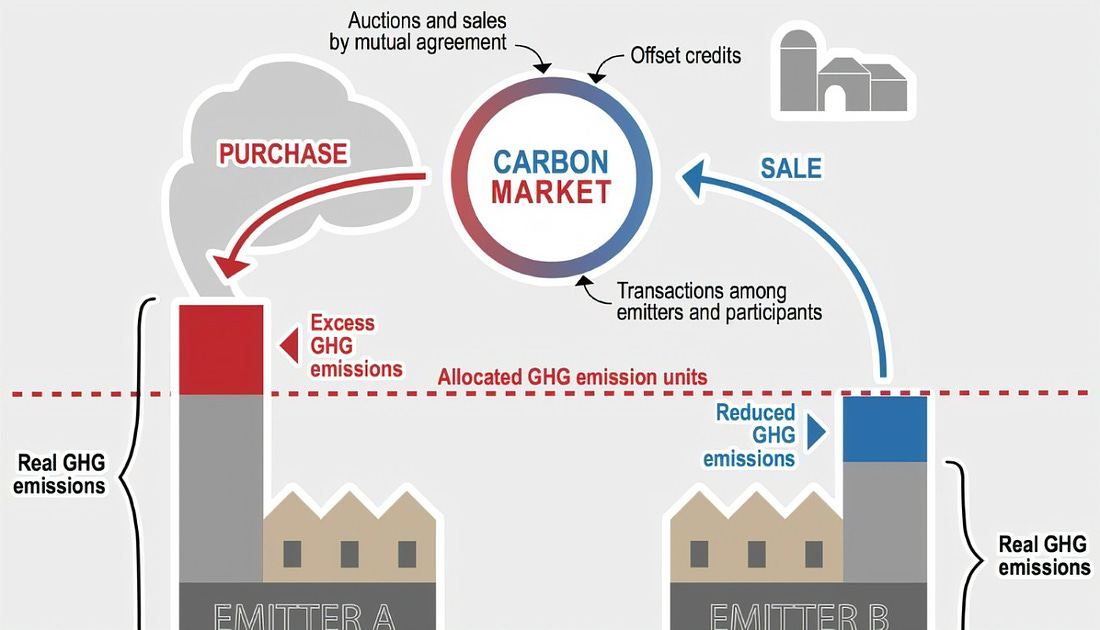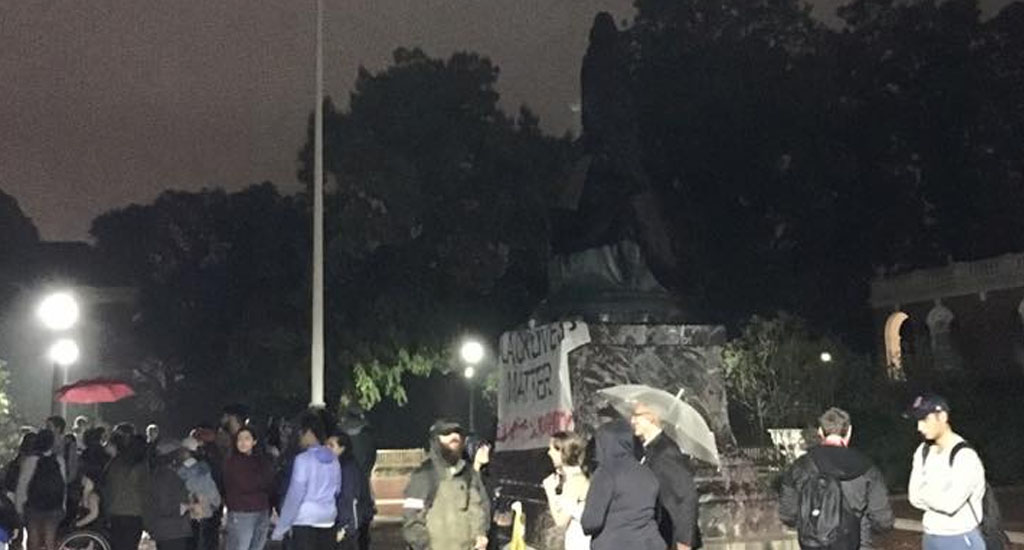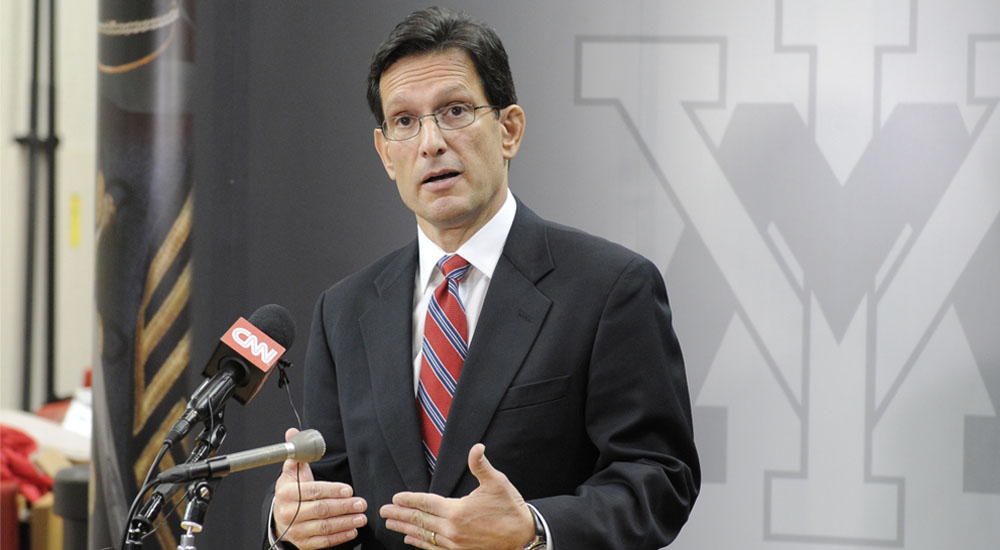The Regional Greenhouse Gase Initiative (RGGI) is a primarily northeastern conglomerate that negotiates in carbon credits. Effectively, the schematic pumps money in from state governments who participate in the framework, then doles out carbon credits from states who shut down coal and gas electrical plants. First one to green energy gets a bonus that is designed to offset the higher cost of green energy such as windmills, solar, and small gerbils running in wheels and powered by celery sticks.

So what does this look like in practice?
In truth, it functions much as former Governor Sarah Palin (R-Alaska) described it would back in 2008 — a cap and trade deal that mimics a free market if not for the fact that it is entirely artificial.
Instead of tulips or NFTs we are trading in carbon.
Of course, this is where things get a bit dicey. The first hit is always free, yet with most federal and state mandates, once in the camp it becomes nearly impossible to dig out of the framework.
David Wojick at CFACT explains the conundrum:
The RGGI allowance auction tax program (where electric power ratepayers have to pay for the allowances) is especially nasty because the tax is unpredictable and can become very volatile. This will be especially true as Virginia rapidly increases its reliance on intermittent renewables, which is mandated by the so-called Virginia Clean Economy Act (VCEA). The implication that Virginia currently has a dirty economy is amusing, but the law is dangerously serious. For example, Europe is suffering from renewables driven electricity price volatility, and so might Virginia under the RGGI.
Steven Haner over at the Thomas Jefferson Institute for Public Policy (TJIPP) captured the essence of the problem:
The State Corporation Commission reviewed and approved an initial charge of $2.39 per 1,000 kilowatt hours of usage, starting this past September, but that was always a backward-looking figure. Allowance costs have been far higher than originally projected by the Governor Ralph Northam administration when it peddled this idea to the General Assembly. The knowing underestimate is also something the Jefferson Institute warned about years ago.
Looking at the 2021 RGGI allowance costs, on December 6 Dominion sent the SCC its first annual update for the special charge on its bills. It wants to increase that $2.39 per 1,000 kWh to $4.37, an 83% jump in just one cycle. Even that may not be enough for Dominion to have fully recovered the cost of RGGI allowances it will have used in its first two years.
The first auction in 2021 set a price of $7.60 per ton of CO2 emitted, and by the fourth and final 2021 auction last week that has risen to $13 per ton. Dominion’s new request is based on a projected $10.53 per ton. That won’t cover the full tab going forward and they know it.
So who picks up this tab? Certainly not Dominion Energy.
Much like minimum wage hikes and the increased cost of everything, basic economics teaches us that such costs gets passed on directly to the consumer.
Of course, the temptation is always to blame Dominion or McDonalds or WalMart for the increase in prices. Easier to do if you are a for-profit firm; harder to do if your profit margins are limited by the State Corporation Commission.
Governor Youngkin — in line with his Day One Agenda — kept his promise to issue an executive order pulling Virginia out of the RGGI. The move immediately drew the expected criticism of Democrats eager to end the honeymoon quickly. In response, the Youngkin administration removed the order, but insists that RGGI’s days are numbered and will ask a state regulated board to do the work.
As both Haner and Wojick note, the enabling legislation authorizes (but does not mandate) the governor to enter the RGGI:
Simply put this is an authorization, not a mandate. Authorization is something an agency can do if it wants to, and is able to. It is not something it must do. This distinction is fundamental to administrative law, and many programs are authorized but never enacted.
Which means the late-AG Herring’s opinion that backing out of the RGGI is somehow illegal is not just ill-founded, but purely political. Which further means that for all the saber-rattling from organizations such as the Southern Environmental Law Center (SELC) these cowboys are all hat and no cattle:
“Since Virginia’s participation in RGGI is required by law, it cannot be repealed through regulation alone, whether labeled as ‘emergency’ regulation or otherwise,” said Nate Benforado, a senior attorney with the Southern Environmental Law Center.
Youngkin’s option to allow a state regulatory board to do the deed is also a prerogative of the executive office, fundamental to administrative law. Virginia’s new attorney general Jason Miyares — if required — may confirm the obvious, but the confirmation of what seems obvious to most might as well be written in crayon for as much good as it will do for the other side.
This does impact a wider conversation about how anti-energy groups are conniving and orchestrating an effort to push unreliable green energy. Such moves pushed New England’s energy producers into the arms of Russian energy firms more than happy to ship much needed natural gas to thirsty ratepayers in Boston.
At a price.
Meanwhile, energy producers such as Dominion and Appalachian are facing a tsunami of criticism from progressives who see Dominion as one of the few institutions not within their orbit, green energy environmentalists, foreign suppliers of reliable energy, and people who just don’t like energy infrastructure.
Whatever the wider outcome of that conversation concludes, Dominion and Appalachian ratepayers should know one thing. The solutions for carbon credits and the settled science behind it will be found in their paychecks.
In the meantime, watch carefully as Virginia Democrats go to an old playbook — saying no to anything that rolls back the agenda they pushed on Virginians over the last two years.
With 2022 around the corner and 2023 shortly after that, perhaps the progressives haven’t learned the lesson yet — and conservatives should continue to support our Republican elected officials as manners and civility are being taught to the obstinate and intransigent in real time.







